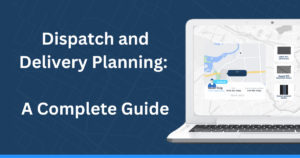Selecting the right platform for your store may sound like a daunting task. However, it is a vital aspect for ensuring the success of your online business and/or ecommerce website.
In order to make an informed decision, you need to understand your business needs and the features that each platform offers.
In this guide, we’ll walk you through the process of choosing the best ecommerce platform to meet your needs.
The importance of choosing the right ecommerce platform
Why does selecting the right type of ecommerce platform matters for your business?
For starters, it can automate and streamline your business processes. This includes managing inventory levels, processing orders, and making the shipping process easier.
This automation will lead to improved efficiency and better customer satisfaction.
On the other hand, selecting the wrong platform can lead to poor customer engagement and lower return on investment (ROI).
Defining your ecommerce business needs
You will need to define your ecommerce business needs before you can choose a platform that is right for you.
If you don’t know where to start, consider reading our guide containing all you need to know for starting an online store.
The TL;DR version is this:
- Identify the functionalities you want for your online business.
- This includes special features or website integrations.
- This includes special features or website integrations.
- Determine your budget and projected timeline.
- Ensure you include initial setup, while also preparing for potential issues along the way.
Let’s dive into these two crucial steps.
- Must-have functionality, integrations, and features
Start by identifying your specific needs and goals, as well as the essential features and integration you need for your online shop.
This could include:
- Payment gateways.
- Shipping options.
- Flexible delivery solutions.
- Inventory management systems.
Understanding your customer demographics and their preferences will also help you decide which platform is best suited for your ecommerce business.
HERE’S HOW: Starting an online shop: How to identify your target audience
- Budget, timelines, and potential complexities
Before you start looking for the best ecommerce platform, consider all the costs involved in setting up your online shop.
- Total cost of ownership (TCO).
- Initial setup costs, such as domain name and web hosting.
- Ongoing website maintenance.
- Potential upgrade expenses as your business grows.
Next, set up a timeline for how and when everything will be implemented.
Types of ecommerce platforms
There are several options available when choosing the platform for your ecommerce site.
You could build your own commerce platform, or use any of the trusted platforms out there.
Build your own basic online store:
If you know how to build a basic online shop, this might be the option for you.
Even if you don’t know the first thing about web design, you could still contract the development of the platform out to a contractor or freelancer.
This method is less common nowadays, with the rise of so many easy-to-use and affordable Saas ecommerce platforms.
SaaS platforms:
Most online stores operate on a software-as-a-service model. In fact, it’s the go-to ecommerce solution for thousands of online shops.
Think Shopify, BigCommerce, Etsy, etc.
These platforms are built on a single codebase, meaning all users can access the same technology for a monthly or yearly fee.
You won’t have to worry about maintenance or updates, since this would likely be included in the fee.
Composable and open-source options:
This is a more modular approach to online business.
It allows online businesses to select and integrate the best solutions, while still maintaining control over the code to navigate customization and flexibility of your online shop’s appearance and functions.
Magento (or Adobe Commerce) is a well-known and trusted example of an open-source platform.
How to choose the best ecommerce platform
There are several factors to consider when choosing the best ecommerce platform for your business.
- How fast will your business scale, and will your online platform scale with it?
- Will your store be accessible to shoppers using mobile devices?
- Spoiler alert, it should.
- Social commerce is a $1.6 trillion business.
Let’s look at scalability and flexibility, mobile-friendliness, and security aspects.
Scalability and flexibility
You’d want a platform that can grow and expand with your business, and this includes choosing a platform that supports multi-tenancy and multi-sites.
What does this mean?
Multi-tenancy means each tenant’s data (in other words, your store’s data), is isolated from other stores who use the same platform.
This is crucial for scalability and cost efficiency, as it allows businesses to serve multiple clients using the same infrastructure.
Multi-site capabilities means you can manage multiple sites from a single platform. This is useful for when your business operates across different regions or languages.
SEO-friendliness and mobile-friendliness
Choose a platform that is SEO-friendly (meaning it is optimized for search engines).
This will ensure your shop shows up on SERP (Search engine result pages) when someone searches for a particle phrase or product.
You’d also want to consider a mobile-responsive design to ensure your website adapts to different screen sizes and devices.
After all, you’d want to keep your shoppers happy, regardless of whether they are browsing from a desktop PC, a laptop, a tablet or a smartphone.
Security and support
Probably the most important aspect here will be security and support. You’d want features to protect your online shop from data breaches, hacking and fraud.
This is important from a customer satisfaction angle as well, since customers tend to trust companies who value their personal data.
READ MORE: What do customers really want? Companies that prioritize data protection
The same can be said for customer support. You’d want a platform that can quickly resolve any issues that may arise.
Ask yourself, does your chosen platform offer:
- 24/7 support,
- emergency assistance, and
- multiple support channels, such as live chat, phone, email)?
Most ecommerce platforms offer a combination of some of these features, if not all.
Popular ecommerce platforms
BigCommerce
- BigCommerce is a comprehensive ecommerce platform with a variety of tools and features.
- Offers flexibility and customizability, making it suitable for mid-market and enterprise brands.
Adobe Commerce (Magento)
- Adobe Commerce is an open-source ecommerce platform with a high degree of customizability.
- Users have full access to the source code and data, allowing for fine-tuning of the buyer journey.
Shopify
- Shopify is a SaaS ecommerce platform with a strong market presence.
- Features include payment gateways, shipping and fulfillment, and email marketing.
For a more detailed guide on setting up every aspect of your online shop, be sure to read our comprehensive guides:
About the author
Cheryl has contributed to various international publications, with a fervor for data and technology. She explores the intersection of emerging tech trends with logistics, focusing on how digital innovations are reshaping industries on a global scale. When she's not dissecting the latest developments in AI-driven innovation and digital solutions, Cheryl can be found gaming, kickboxing, or navigating the novel niches of consumer gadgetry.












